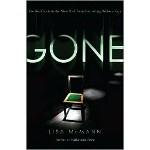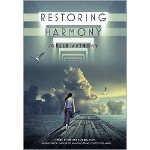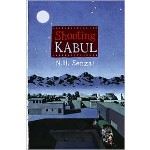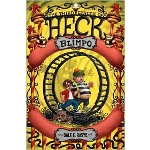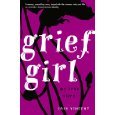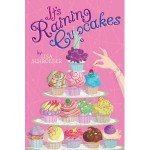Michael Bourret is an agent with Dystel and Goderich, and recently opened their brand-new West Coast office. I’ve heard Michael speak at a few of the national SCBWI conferences, and it’s always a pleasure. Don’t miss him at the SCBWI Western Washington conference this weekend!

L: Welcome, Michael! Thanks so much for taking the time to answer some questions for me! Your various bios and market listings say you accept all kinds of nonfiction, and I know you represent adult nonfiction, but I don’t see any nonfiction for kids among your titles. Why is that? Please give us some insight on the juvenile nonfiction market from an agent’s perspective.
M: Thanks for having me, Laurie! And I’m excited that you’re asking about juvenile nonfiction, and I’ll be really honest: I don’t know much about it. It isn’t a category that I’ve pursued, aside from the amazing picture books of Anne Rockwell’s. I think that juvenile nonfiction has mostly been left to the academic publishers, in part because it isn’t as glamorous as novels. But that may well be changing, as is the very definition of category. I’m seeing a lot more innovation and a new approach, including more memoir and other narrative nonfiction.
L: Several children’s nonfiction titles received quite a lot of attention this year, especially Phillip Hoose’s CLAUDETTE COLVIN and Deborah Heiligman’s CHARLES AND EMMA. Do you think this will have any effect on the market?
M: Any commercial success will have an effect on the market, and the critical and commercial response to both of these books certainly got my attention. I’m not sure we’ll see a flood of nonfiction, but I do think we’ll see some smart books coming from major publishers better known for their fiction.
L: You don’t represent picture books, either—is that a personal preference, a matter of industry knowledge and expertise, or a purely financial decision (or one of the other reasons fellow agent Michael Stearns blogged about here)?
M: I do represent some picture books, actually, but it’s not an area in which I’m looking to grown. The market is difficult, especially for writers, and since they’re the ones I represent, it just doesn’t make sense for me to continue looking for new clients.
L: Is there anything you wish would show up your query pile that just hasn’t been there (be careful what you wish for!)?
M: As I said in another interview recently, with how many queries I get, it’s hard to say that there’s anything I haven’t seen! I’d rather not see books that chase trends, but that said, I love to see how people can approach well-worn ideas in a new way. I recently signed up a novel based on a Poe story that I’m very excited about, and I’d love to see more dark, psychological thrillers. Something that makes my skin crawl would be great!
L: Tell us about your agenting style: Are you very editorial? Phone or email? Hands-on throughout the whole process or mitts off until the final product?
M: All agents have to be editorial, but I’m not someone who’s going to line edit a manuscript. It’s just not where my skills lie. I do love to develop ideas with authors—helping them to turn a vague notion into something that supports a book-length narrative. I’m more of a phone than email person, but I spend much more time on email! I wish people utilized the phone more; a conversation has a certain give-and-take that can help get to the point more quickly. I’m pretty hands on, and as I say to new clients, I like to know everything. That way I can anticipate and preempt issues they may not even see arising.
L: What aspects do you like most about being an agent? Least? Pet peeves (please don’t say blog interviews, please don’t say blog interviews…)?
M: I like that every day is different. I like pitching to editors, I like discussing ideas with clients, I love finding new voices. I love building relationships and matching authors and editors. I like discussing big-picture ideas with my colleagues, both in-house at DGLM and with the publishing world at large on Twitter and through our blog. It’s hard to say that I don’t like a part of my job, but I don’t like how long things take. I’m really impatient. I don’t have any major publishing pet peeves, but I do wish we could all be more kind and respectful. It’s a challenging business, and emotions run high, but we need to remember that we’re all in it together.
L: Besides the manuscript itself, what other factors do you consider when deciding whether or not to offer representation (platform, online presence, productivity, specialization, recommendations, affiliations, etc.)?
M: The manuscript is what matters. If that doesn’t knock my socks off, nothing else matters. In a query, however, mentioning a large platform, and award win, or even membership in reputable organizations like SCBWI will make me pay more attention. But then it comes back to the manuscript again. It’s got to be great.
L: Besides carefully reading market guides, surfing the web and sending targeted queries, what can we authors do to ensure a good fit, both when submitting and when considering an offer of representation?
M: If you’re doing your homework and research in advance, the only other thing you need to do is interview the agent. It’s important for both writer and agent to chat and make sure that they get along and can have a conversation. If you’re afraid of your agent, the relationship isn’t going to work. If you don’t feel like your agent is enthusiastic about your submission, the relationship won’t work. I tell people all the time that they should wait for a good match and not just take the first offer. It’s hard to do, I know, but I think the advice is sound.
L: I think authors put so much time and effort into finding an agent, that then interviewing an interested agent feels a bit intimidating. What kinds of questions do you think authors should ask to determine if an agent will be a good match?
M: Authors should ask agents about the editorial vision for the book, how they work day-to-day and how the submission will work, how often they can expect to be in touch, and then they should discuss the future—what do both the author and agent see for the author’s career down the line? It’s important that you’re on the same page as your agent about these things.
L: Do you have any upcoming client titles you’d like to highlight for us?
The past couple of months have seen the exciting releases of Eleventh Grade Burns by Heather Brewer and Gone by Lisa McMann, the release of which got both series onto the New York Times list. The coming months will see the release of Restoring Harmony by Joëlle Anthony and Shooting Kabul by N.H. Senzai, two debuts that I’m really proud of. In addition, the fantastic Suzanne Selfors’s fifth book Smells Like Dog is also out shortly, along with Dale Basye’s third book in the twisted “Heck” series, Blimpo. And that’s just through May!
L: Is there anything else you wished that I had asked, but didn’t? Feel free to write your own question here. =)
M: This has been a terrific and thorough interview. I’ve got nothing to add, but thanks so much for thinking of me!
L: Thank YOU, Michael! I really appreciate the time and thought you put into this, and we’re looking forward to hearing more at the conference this weekend.


